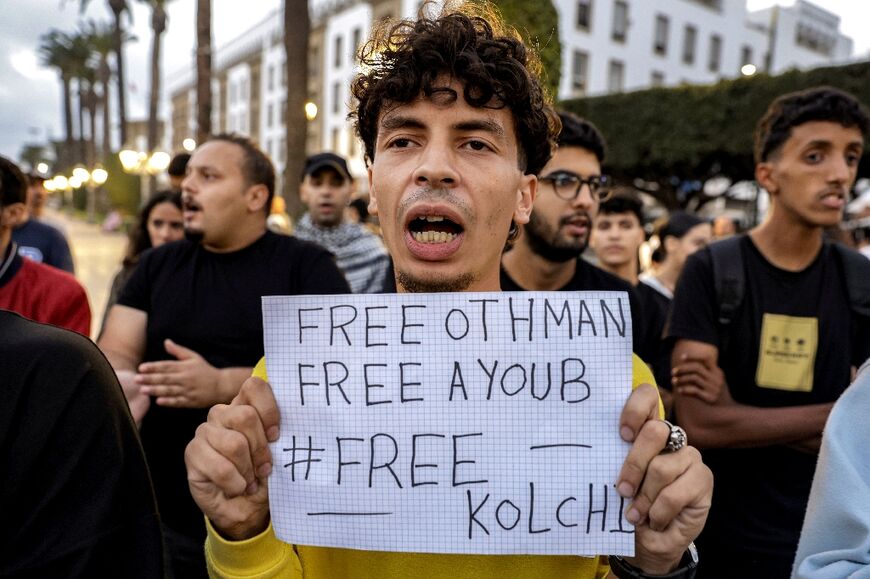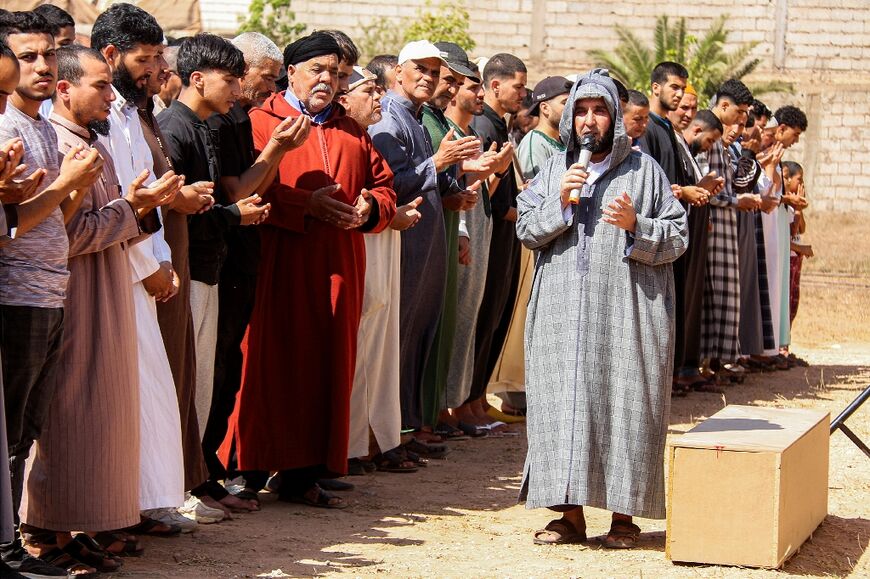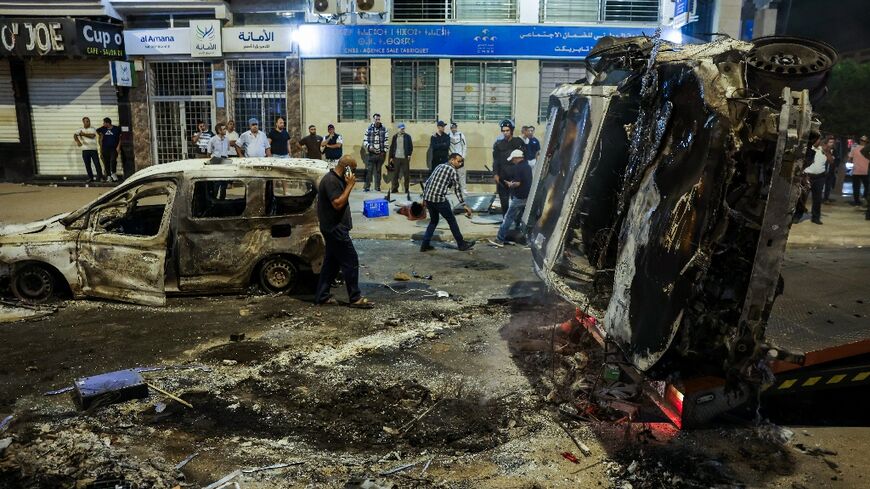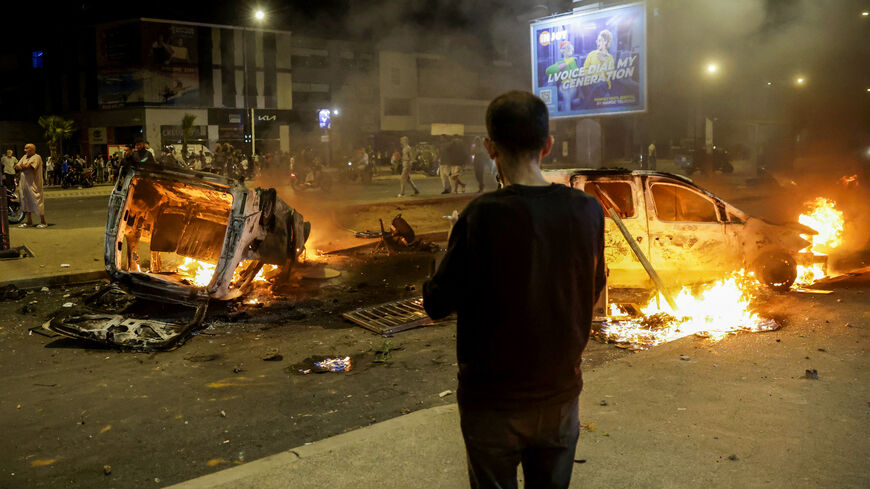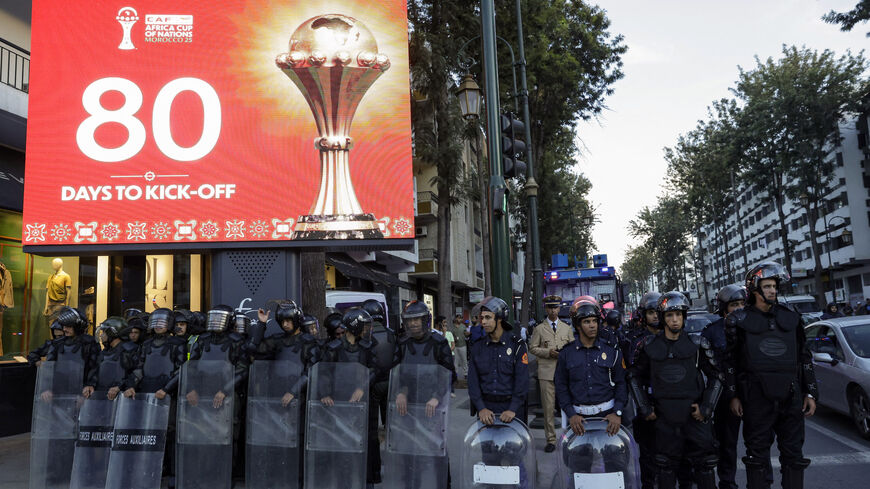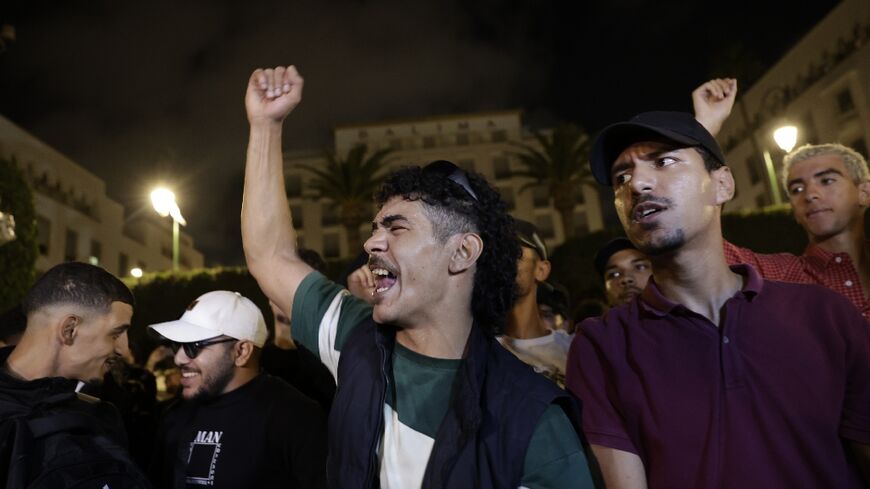Mourning and shock in Morocco after student killed in protests
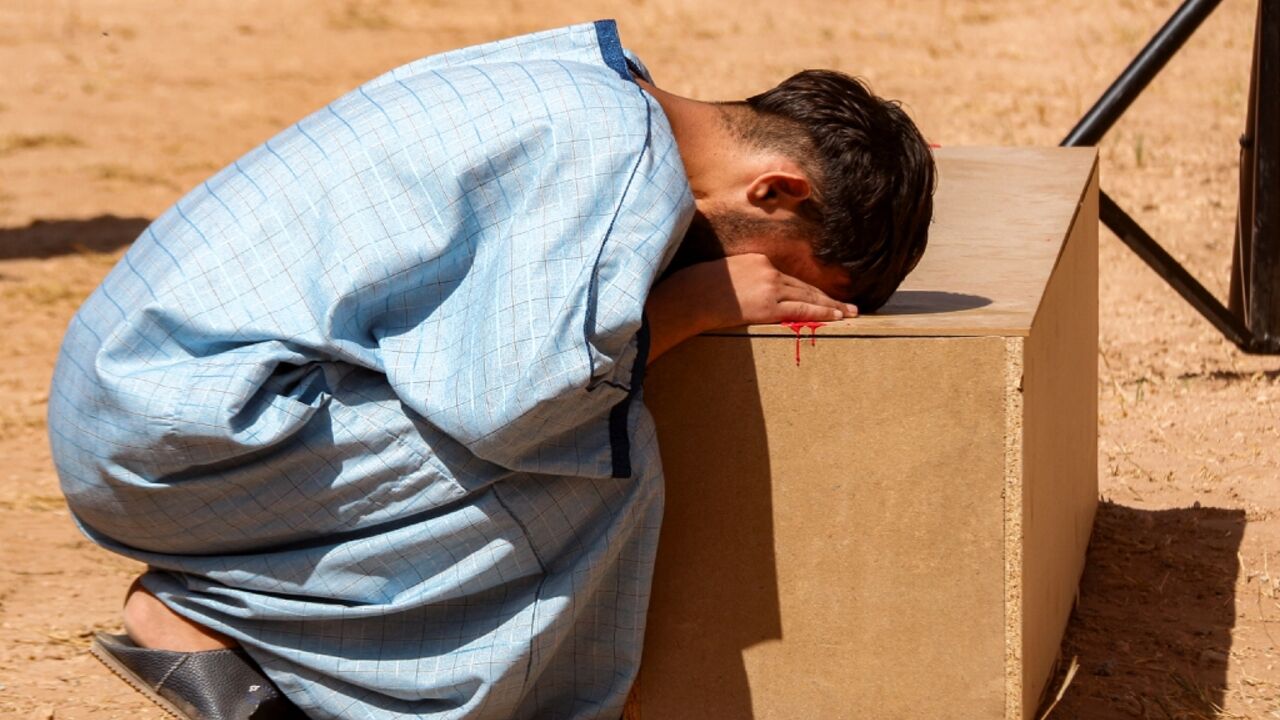
Like many in Morocco, Abdelkabir Oubella had been watching videos of protests unfold across the country, but nothing could prepare him for the shock of discovering that his son was among three shot dead in the unrest.
For more than a week, Morocco has been shaken by daily protests led mostly by young people demanding reforms in the North African country's struggling health and education systems.
The unprecedented movement erupted after the deaths of eight pregnant women admitted for Caesarean sections at a public hospital in Agadir, sparking outrage over deteriorating public services.
Abdessamad Oubella, a 25-year-old film student, was killed overnight Wednesday to Thursday in Lqliaa, near Agadir in southern Morocco. Two other people were also shot dead by police.
Authorities said a group had tried to attack the security forces to "steal" ammunition and weapons.
"I came across a video where my son appeared -- I didn't even know it was him," Abdelkabir Oubella told AFP.
Surrounded by men from his village of Adouz Oussaoud, near Lqliaa, the 51-year-old day labourer had just buried his son in a wooden coffin.
"We never imagined this could happen," said Ayoub, Abdessamad's brother.
"My brother was there to document what was happening," he said. "He didn't throw stones, he didn't take part in the unrest."
According to his father, Abdessamad was struck by a bullet to the head.
The protests have been organised through a newly formed collective on the Discord web platform called GenZ 212, which has again called for rallies on Sunday night in 22 cities.
- 'Troublemakers' -
Life is modest and many people are day labourers in Lqliaa and in nearby Adouz Oussaoud, which lie in one of Morocco's main agricultural regions and are known for tomato cultivation.
In Adouz Oussaoud, a wall bears a large mural reading "Don't open, dead inside" -- a reference to the hit zombie TV series "The Walking Dead".
Among residents, sadness and disbelief prevail after the violence.
Those interviewed by AFP said they supported calls for reforms in health and education -- sectors that reflect Morocco's deep inequalities -- but condemned the unrest.
"Health and education services here are not adequate for the size of the population. We need more support in both sectors," said Hassan Garir, 39, of Lqliaa.
"But when I saw what was happening on social media, I couldn't sleep that night.
"It's tragic," he said.
"What those troublemakers did has nothing to do with expressing legitimate demands."
Abdessamad's father agreed, saying "we are against vandalism and ignorance".
That night, CCTV footage released by authorities showed masked youths armed with iron bars and stones trying to force open a door.
Security forces fired tear gas to disperse them, but the attackers returned and set fire to bins and tyres at the entrance of the building.
The GenZ 212 collective says it only calls for non-violent protests.
On Sunday, it urged supporters to speak with "one voice" and maintain "peaceful and responsible behaviour".
